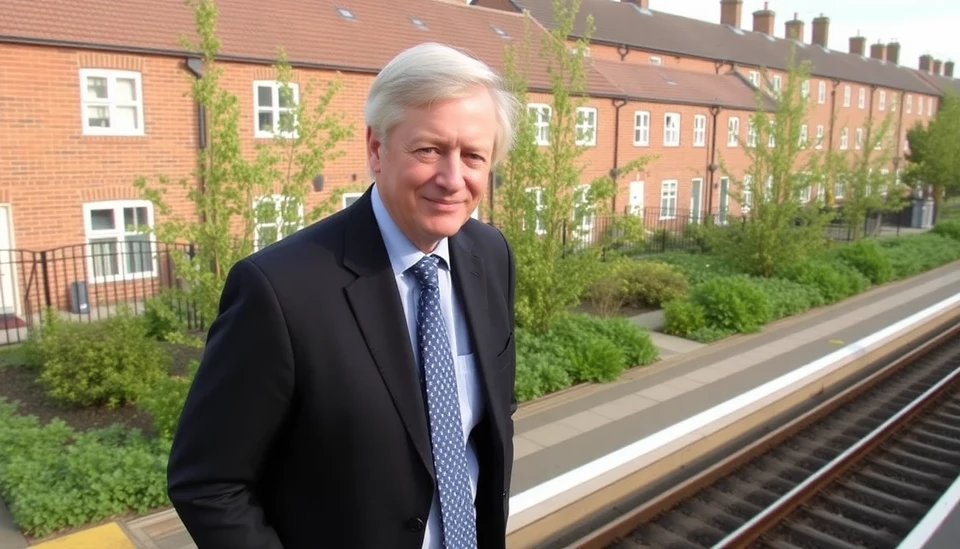
In a bold move aimed at alleviating the pressing housing crisis in the United Kingdom, Chancellor Jeremy Hunt has unveiled a plan to expedite property approvals in close proximity to rail stations. This initiative comes as part of a broader strategy intended to enhance housing availability while also capitalizing on existing transportation infrastructure. The proposal is set to modify regulatory procedures, making it easier for developers to start construction projects rapidly.
Hunt emphasized that the timing of this announcement aligns with the government’s commitment to increasing housing supply and supporting economic recovery. By focusing on areas surrounding rail stations, the Chancellor believes this approach will not only facilitate more homes but also promote sustainable urban development. The integration of housing with public transport networks is seen as a strategic advantage, providing residents with easier access to jobs and amenities.
The initiative will see a simplified planning process where certain criteria are streamlined, allowing developers to bypass some lengthy bureaucratic hurdles that traditionally delay construction. The move is particularly relevant in light of recent statistics indicating a significant shortfall in the number of houses built in the UK compared to demand. Critics of existing processes have long pointed to excessive red tape as a primary factor in the slowdown of housing projects.
In addition to easing regulations, the Chancellor also announced potential financial incentives for developers willing to invest in locations earmarked for these expedited approvals. By linking housing development closely to transportation options, the UK government is aiming to create vibrant communities that are not solely reliant on car travel, thus representing a shift towards more environmentally conscious urban planning.
The latest proposal has garnered mixed reactions from industry experts. While some welcome the increased focus on housing supply in well-connected areas, others express concern over the potential impact on local communities and infrastructure. There is apprehension that hastily approved projects could overwhelm existing services or alter the character of neighborhoods.
To mitigate these risks, the government has pledged to engage with local councils and stakeholders throughout the approval process. Stakeholders are being invited to share their insights and concerns, ensuring that community needs are not overlooked in the rush to build. This collaborative approach aims to foster developments that enhance rather than disrupt local environments.
As the government prepares to roll out its plan, all eyes will be on the effectiveness of this strategy in addressing the UK’s housing woes. With affordability being a key concern for many citizens, the focus on rail-adjacent developments could potentially lead to more accessible housing options, paving the way for a more balanced and inclusive urban landscape.
Ultimately, the success of this initiative will depend on its execution and the extent to which it genuinely addresses the critical housing shortages faced across the nation. As Chancellor Hunt presses forward, the UK population eagerly awaits the tangible outcomes of this ambitious policy shift.
#HousingCrisis #UKHousing #Chancellor #UrbanDevelopment #RailStationHousing #EconomicRecovery #SustainableLiving
Author: Daniel Foster




